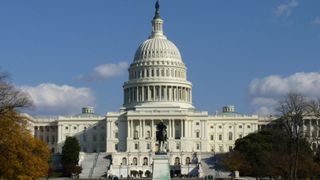Sinclair-Tribune Critics Talk Deal Harms

Rep. David Price (D-N.C.) will get together with critics of the Sinclair-Tribune deal Tuesday (Oct. 3) to talk about why it is not in the public interest.
That comes in advance of the Oct. 5 deadline for Sinclair to provide the FCC with more evidence of the public interest benefits it claims for the deal, and more information on how it will comply with local ownership rules.
Price has introduced a bill, the Local and Independent Television Protection Act, that would permanently eliminate the UHF discount. The FCC's restoration of that discount under chair Ajit Pai helped pave the way for the deal by allowing the combined TV station group to reach over 70% of the country.
Related: FCC's Pai Confirmed to New Term
There is a 39% cap on national audience reach, but the UHF discount means a station owner only has to count half of a UHF station's audience. The discount was eliminated under FCC chair Tom Wheeler, but restored by Pai, who said whether not it should be lifted -- he has suggested it is outdated -- should be considered in concert with the fate of the 39% cap.
The discount dates from the analog era when UHF signals were inferior.
Joining Price to push back on the merger and for the bill are former FCC commissioner Michael Copps, One America News Network president Charles Herring and Capitol Broadcasting chair Jim Goodmon.
"At a certain point, the Federal Communications Commission took out the UHF discount because it didn’t make sense anymore— stations being UHF is no longer a disadvantage, it is an advantage,” says Goodmon. “Now, low and behold, the FCC put it back in and none of us can understand why. We rely on the FCC for technical competence in terms of frequency and power; we rely on them being straightforward and open on technical standards and on how things work. But now, they’re cooking the books in order to change the ownership limits. The way the FCC has done it is just disgraceful.”
Broadcasting & Cable Newsletter
The smarter way to stay on top of broadcasting and cable industry. Sign up below
